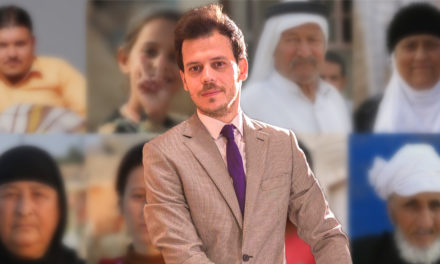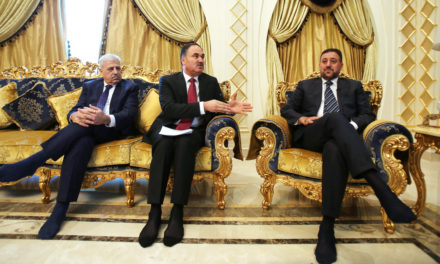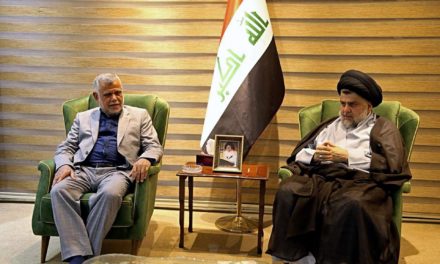Many countries often go through different types of political, security, economic or social crises that is reflected in the daily reality of their societies. If these crises are not addressed objectively and carefully, they will have direct and negative repercussions on the nature of the relationship between governments and their citizens. These repercussions can also have a negative effect on different communities within societies. The search for remedies for these challenges faced by states require all stakeholders to take stock of the real causes of the crisis even if it leads to admission of mismanagement.
Great challenges
Having said that, there remains general belief that the secret of success for governments in developed and democratic countries depends to a large degree on the acceptance and understanding of the voters of the manifestos which are put forward by the governing parties during election period. These manifestos need to translate into policy the visions of these parties following reflection on their challenges, problems, failures, in addition to the potentials which their country poses in the areas of human capital, geography, history and natural resources.
If we take into account the magnitude, complexity and multiplicity of challenges facing Iraqi government and society in political, economic, social, cultural, educational, environmental, security, military and other fields, it is easy to come to the conclusion that the difficult situation Iraq faces is a natural consequence of the accumulation of decades of mismanagement and bad governance. Not to mention the repercussions of culture of war, Ba’athist brutality, violence and the weakness in the rule of law. These abnormalities of environment have created their own kind of misguided values away from social harmony and tolerance.
No easy solutions
The complexity of the crisis is compounded both by the government and society’s search for quick and easy solutions to complex and deep rooted problems. Superficiality and unsystematic solutions thus contribute to creating vicious cycles with additional problems that make it more difficult to solve already existing problems, let alone forthcoming ones. To clarify the situation, the challenges we face is like trying to fix the bone of a body which has grown distorted or deformed for years (in our case for more than 30 years). It is impossible to reconstruct the structure of the body to its normal healthy position overnight, there is a need for accurate diagnosis and a treatment plan to be carried out in stages, scientifically and by the specialists. It also requires patience that may take years to rectify correctly and permanently. Quick solutions such as extraction, fracture and surgery will make the situation more difficult and create additional problems that were not already present.
An impartial observer does recognize the fact that it is impossible to address these challenges facing Iraqis and their government in a short period, or just by implementing a few reform steps here or there. Likewise, it is impossible to address these issues during the lifetime of one government. Here the current government must prepare the necessary inputs and transformation framework to ensure the success of its reform policies so that it can win over public and political support. As well as, gain the appropriate external support so that the government can overcome the obstacles that impede the country’s path towards sustainable development. At the same time, it is necessary for society to support the government’s reform movement and to consider itself as a necessary partner with the government in its quest to build and reform the country.
The spirit of belonging to Iraq
A reflective and recovering society are two of the most important factors contributing to the creation of a healthy environment while it endeavours to develop itself. Building a conscious civil society based on efficient technocratic cadres is one of the fundamental foundations in which the country’s progress and prosperity will depend on. It is one of the axioms of the administrative system in developed countries that seek to build a strong foundation for their state.
Therefore, the government should play the greater role in strengthening the national conscience of the society while implanting the spirit of citizenship and belonging to Iraq, which will reduce the gap between the government and the people in addition to help overcome the myriad of crises we face. The process of maintaining security, stability and recovery after crises is a great responsibility for all, not just for the state apparatus. It is a national and humanitarian duty at the same time. Success can only be achieved by Iraqi government leading the process of reform and change, beginning with the political class while acknowledging the difficulties and obstacles we all face. Thereafter, citizens will follow once they see their leaders lead by example.
Building nations is an arduous process, but it is only doable if we have the honest will to endure and build the future of our country, for our children and our grandchildren together. There is no harm in following the example of other advanced nations that have gone through something similar to what we are struggling with today. There are many examples from Korea, Japan and Southeast Asia to Europe after World War II and the Cold War. Perhaps the speed and strength of building our nation will depend first on the extent of our endeavour to embrace the process of change to achieve prosperity while cementing national security as Iraqis together.
What we faced so far can lead us toward two things: despair and thus losing everything, or enhance the spirit of challenge and determination to build our nation, our homeland, our future together, and thus having collective success.

Lukman Faily
Lukman Faily served as Iraqi ambassador to Japan and the United States.










